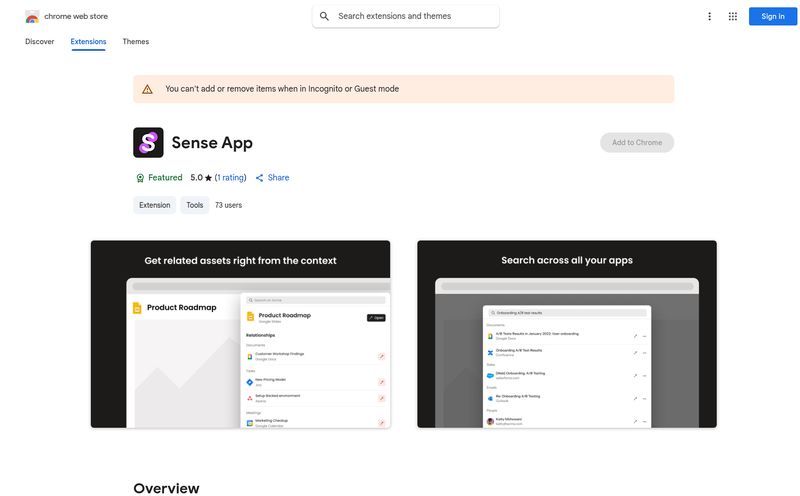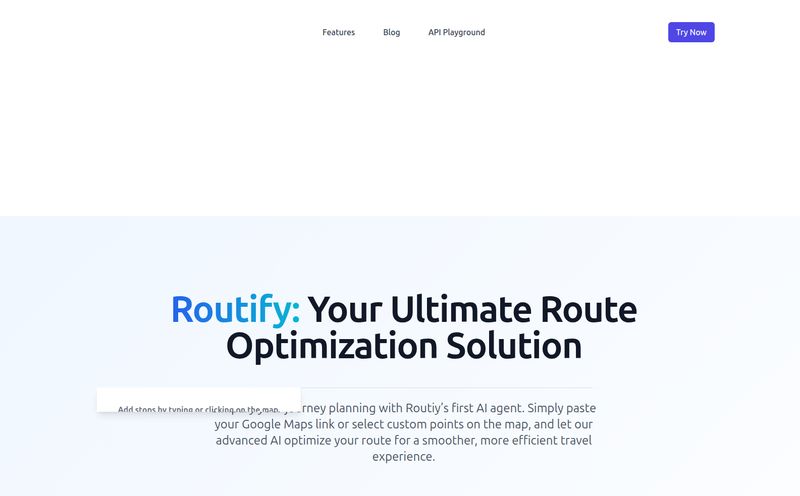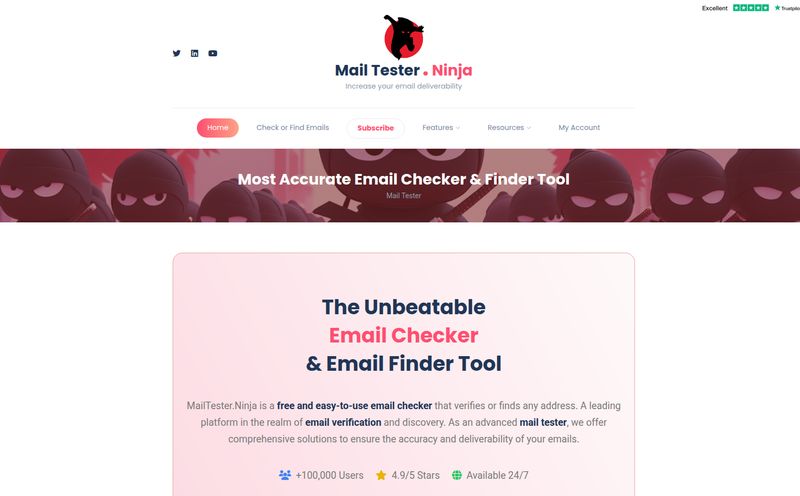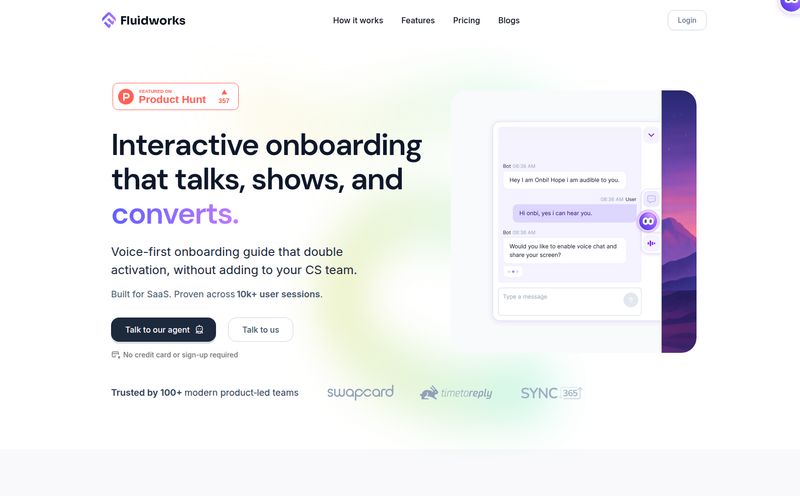If you're in manufacturing, you know the drill. The RFQ lands in your inbox. And so it begins. The frantic search through spreadsheets that look like they were designed by a demon, the back-and-forth emails trying to clarify specs, the gut-check on pricing that you hope leaves enough margin. By the time you get the quote out, your competitor might have already closed the deal. It’s a grind. I’ve seen companies lose six-figure deals simply because their quoting process was a chaotic mess.
So when a platform like broadn comes along, claiming to be an "AI-native CPQ" that acts like an AI agent for your sales team, my ears perk up. But I’m also a grizzled veteran of this industry, and I’ve seen a lot of tech promise the moon and deliver... well, a moon rock. A very small, uninteresting moon rock. Is broadn different? I decided to dig in.
So, What is broadn, Really?
Forget the jargon for a second. At its heart, broadn is trying to solve that chaotic quoting process. CPQ stands for Configure, Price, Quote, which is a category of software that’s been around for a while. The old-school versions were basically complex digital price books. Clunky, but better than nothing.
Broadn’s angle is the "AI-native" part. Instead of just being a database, it acts more like a super-smart assistant. The idea is that it can read an inbound email from a customer, understand what they need (even with custom configurations), build an accurate quote based on your specific pricing rules, and get it ready for review. It’s designed to be a co-pilot, handling the tedious stuff so your actual human sales reps can focus on, you know, selling and building relationships.
It’s a pretty compelling pitch. An AI agent that doesn’t need coffee, never takes a sick day, and can scale up instantly? Sounds almost too good to be true.

Visit broadn
The Core Features That Actually Move the Needle
A pretty website is one thing, but features are what pay the bills. From what I've seen, broadn is focusing on the right pain points.
The 24/7 AI Email Agent
This is the showstopper for me. The platform can hook into your sales inbox. When a request for a quote comes in, the AI parses it, figures out the product, the quantity, and any special requests, and then gets to work. Think of it as a tireless gatekeeper, automatically handling the initial grunt work. It can even do automated follow-ups. This alone could be a massive time-saver, freeing up your team from being inbox-monkeys and letting them be strategic closers.
Instant, Error-Free Quoting
Speed kills... your competition. Broadn's whole thing is turning around quotes in minutes, not days. Because the system is built on your established pricing rules and product catalog, it drastically reduces the chance of a fat-finger error that either costs you the job or decimates your margin. They even talk about having margin visibility right on the quote, so you're not just quoting fast, you're quoting smart. That's a big deal.
It Actually Plays Nice with Your Existing Stack
I can’t stress this enough. The last thing anyone needs is another piece of software that lives on an island. Broadn seems to get this. They list integrations with the big players: Salesforce, SAP, Quickbooks, Shopify, and Microsoft tools. This means it’s designed to sync data between your CRM and ERP, creating that seamless flow from a lead coming in to the order being processed. No more double-entry. Hallelujah.
Who Is This For? A Look at broadn's Wheelhouse
This isn't a tool for the local artisan selling bespoke pottery on Etsy. Broadn is aimed squarely at the B2B manufacturing world. On their site, they specifically call out industries that feel the pain of complex quoting every single day:
- Automotive: Dealing with endless parts, SKUs, and tiered pricing.
- Electronics & PCB Assembly: Where even a small configuration change can have a huge price implication.
- Contract Manufacturing: Juggling custom jobs and repeat orders.
- Industrial Components: The classic high-volume, complex catalog scenario.
- Distributors (HVAC, Plumbing, etc.): Where speed and accuracy for a massive range of products is everything.
If you're in one of those fields, this platform is probably speaking your language.
The Good, The Bad, and The AI-Powered
Alright, let's get down to the nitty-gritty. No tool is perfect. Based on the info out there and my own experience with similar platforms, here's my honest take.
The Good Stuff (Why I'm Genuinely Intrigued)
The biggest pro is the sheer potential for efficiency. You’re not just buying software; you’re buying back time. The ability to scale your quoting capacity without having to hire and train more sales staff is huge, especialy in today's tight labor market. Enforcing pricing consistency automatically removes so much guesswork and protects your margins. It’s about building a smarter, more resilient sales process that doesn't rely on one person’s tribal knowledge locked away in their head.
A Quick Reality Check (What to Watch Out For)
Now for the flip side. This isn't a magic wand. The number one thing to remember is the setup. You have to teach the AI your business. That means integrating it with your systems and, critically, defining your pricing logic and rules. This can take work upfront. If your pricing is currently the 'wild west', you'll have to tame it before broadn can enforce the law.
Also, while AI is incredible, it’s not infallible. You'll still need a human to oversee things, handle the truly bizarre edge cases, and give final approval on major quotes. Think of it as a powerful apprentice, not a replacement for the master craftsperson. You'll need to monitor it for accuracy, especially early on.
What's the Damage? A Look at broadn's Pricing
Here’s the part of the review where I’d normally break down the pricing tiers. But, if you go looking for broadn’s pricing page... you’ll hit a 404. Page Not Found.
Don't panic. This is actually super common for enterprise-level B2B SaaS platforms. It almost always means one thing: custom pricing. The cost will likely depend on the size of your company, the number of users, the complexity of your catalog, and the specific integrations you need. Your best bet is to reach out to their sales team through their contact form and get a personalized quote. It's not as simple as a monthly subscription, but for a tool this integrated, that makes sense.
My Final Verdict: Is broadn the Future?
I'm cautiously optimistic. The manufacturing sales process has been ripe for disruption for years, and slapping an AI on the problem feels like the right kind of move. Broadn seems to have a clear understanding of its target audience and their specific, deeply-felt pain points.
Is it going to solve every problem overnight? No. Will it require an investment of time and resources to get set up correctly? Absolutely. But the potential payoff—in speed, accuracy, scalability, and freed-up human potential—is massive. It represents a shift from reactive quoting to a proactive, intelligent sales engine. And in this competitive climate, that might be the most valuable tool of all.
Frequently Asked Questions about broadn
What is a CPQ platform?
CPQ stands for Configure, Price, Quote. It's software that helps sales teams create accurate and customized quotes for complex products quickly. Traditional CPQs are like digital catalogs, while newer ones like broadn use AI to automate more of the process.
How does broadn's AI actually work?
Broadn's AI acts as an agent that integrates with your email and other systems. It's trained to read and understand customer requests (RFQs), match them to your product catalog, apply your specific pricing and discount rules, and then generate a complete quote for review.
What business systems does broadn integrate with?
Broadn is designed to connect with the tools manufacturers already use. Key integrations include major CRM and ERP platforms like Salesforce, SAP, Microsoft Dynamics, as well as accounting software like Quickbooks and e-commerce platforms like Shopify.
Is broadn difficult to set up?
There is an initial setup process. You'll need to work with their team to integrate broadn with your existing systems and, most importantly, define your product configurations and pricing rules. While this requires an upfront effort, it's what allows the automation to work accurately.
Who is the ideal customer for broadn?
The ideal customer is a B2B manufacturer or distributor with a complex product catalog and a high volume of quote requests. Industries like automotive, industrial components, electronics, and contract manufacturing are a great fit.
How much does broadn cost?
Broadn does not list public pricing. This typically means they offer custom pricing based on your company's specific needs, such as company size, number of quotes, and the complexity of the integration. You would need to contact their sales team for a demo and a personalized quote.
The days of drowning in spreadsheets and losing deals because of slow, inaccurate quotes might just be numbered. For manufacturers looking to modernize their sales engine, taking a serious look at an AI-powered CPQ like broadn isn't just a good idea—it's probably essential for staying competitive.



